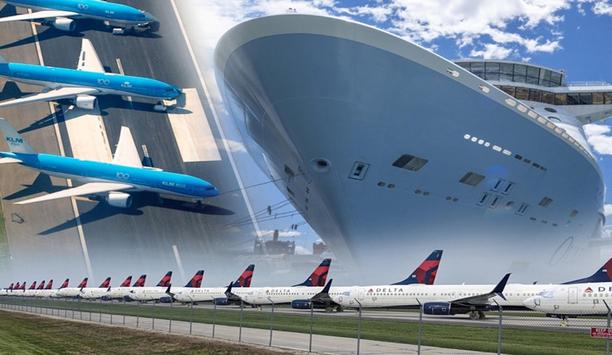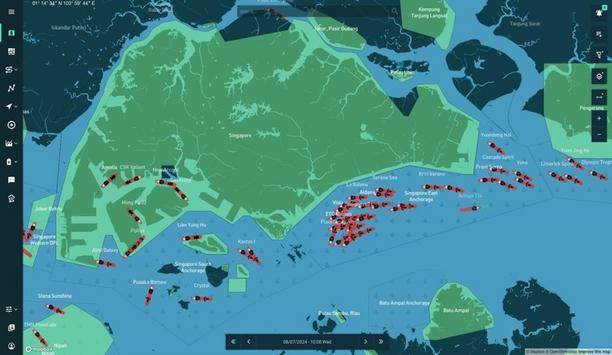Special vessel equipment trade associations in Denmark
The Global Maritime Forum is an international not-for-profit organisation committed to shaping the future of global seaborne trade to increase sustainable long-term economic development and human wellbeing.
The Mærsk Mc-Kinney Møller Center for Zero Carbon Shipping ensures real climate action. They are a not-for-profit, independent research and development centre, looking to accelerate the transition towards a net-zero future for the maritime industry. With their partners, they drive and facilitate the development and implementation of new technologies and build confidence in new concepts.
Founded under the auspices of the International Chamber of Commerce in 1933 as a neutral, non-profit, international organisation, the Bureau International des Containers' (BIC) mission is to enable efficiency in container transportation while promoting safety, security, standardization and sustainability.
Founded in 1956, China Classification Society (CCS) is headquartered in Beijing and is a full member of the International Association of Classification Societies (IACS). CCS provides classification services to ships, offshore installations and related industrial products by furnishing world-leading technical rules and standards.
CLIA UK & Ireland are leaders and innovators in responsible tourism and offer the best way for travellers to experience the world. They are the leading cruise training body in Europe, delivering award-winning training, seminars and events to the UK and European travel trade.
Department for Energy Security and Net Zero (DESNZ) is focused on the energy portfolio from the former Department for Business, Energy and Industrial Strategy (BEIS), in the United Kingdom (UK) government.
European Community Shipowners' Associations (ECSA) is the primary institution and public voice of the European shipping industry. The European shipping industry is a success story and a geostrategic asset to the EU in the face of global challenges. European shipowners operate one of the largest, youngest and most innovative fleets in the world.
International Association of Dry Cargo Shipowners (INTERCARGO) represents the interests of quality dry cargo shipowners. INTERCARGO provides the forum where dry bulk shipowners, managers and operators are informed about, discuss and share concerns on key topics and regulatory challenges, especially in relation to safety, the environment and operational excellence.
International Seabed Authority (ISA) is an autonomous international organization established under the 1982 United Nations Convention on the Law of the Sea (UNCLOS) and the 1994 Agreement relating to the Implementation of Part XI of the United Nations Convention on the Law of the Sea (1994 Agreement).
Together with about 100 group companies in Japan and overseas, Kawasaki Heavy Industries oversees the formation of a 'technology corporate group'. Their technological capabilities, polished over a history that exceeds a century, send diverse products forth into wide-ranging fields that go beyond land, sea, and air, extending from the ocean depths to space.
Insuring a diverse range of ship-owners and charterers, London P&I Club are one of the world’s leading Protection and Indemnity Associations, in order to provide P&I, FD&D and War Risks to cover to their international membership. From tailored solutions to flexible insurance packages – all of their work is directed at meeting their members’ specific needs.
The Marine Environment Protection Committee (MEPC) addresses environmental issues, under International Maritime Organization's remit. Their resolutions are published in the final report of the MEPC meeting, during which they were adopted.
Maritime London is the promotional body for UK-based companies providing maritime professional services to the international shipping industry. Funded by well over 130 companies and organisations from a wide range of disciplines, Maritime London ensures that the UK remains a world-beating location to base a maritime-related business and to conduct maritime trade.
Maritime Research and Innovation UK (MarRI-UK) are a collaborative innovation vehicle for the UK industry and academia to jointly tackle innovation and technology challenges. They focus on research and innovation within mid TRL (3 – 7) levels to address the opportunities between 'discovery and research' and 'commercialisation' of Maritime Technologies and Systems.
NamPower is the national power utility of Namibia and specialises in the generation and transmission of electricity. As an electricity company, NamPower understands that electricity invariably plays an important role in the socio-economic development of Namibia.
The National Oceanic and Atmospheric Administration (NOAA) is an American scientific and regulatory agency within the United States Department of Commerce that forecasts weather, monitors oceanic and atmospheric conditions, charts the seas, conducts deep sea exploration, and manages fishing and protection of marine mammals and endangered species in the U.S. exclusive economic zone.
The National Shipbuilding Office (NSO) drives transformative change to empower a globally successful, innovative and sustainable shipbuilding enterprise that works for all parts of the UK. The NSO oversees all of the Government's interests in UK shipbuilding, supports growth in the sector, and works with industry to improve productivity and competitiveness.
Norwegian Defence Research Establishment (FFI) is the prime institution responsible for defence-related research in Norway. The Establishment is the chief adviser on defence-related science and technology to the Ministry of Defence and the Norwegian Armed Forces’ military organisation. FFI collaborates with national and international scientific institutions and industry.
Petroleum and Energy Trading Services Co. (PETSE) started its operation in the year 2007 at Al Khobar in the eastern province of Saudi Arabia. Since its formation, the company has grown steadily and focuses in providing solutions across various market segments including Oil & Gas and Information and Communication Technology industries.
Reef Renewal Foundation International recognises that for small restoration projects in their infancy, the marketing, fundraising and engagement programs can seem difficult to juggle when the fieldwork is the most important part. RRFI has built an integrative training approach that can be tailored to each location and project, to provide the support exactly where it is needed.
Reef Restoration Foundation is a social enterprise that is establishing a series of ocean-based coral nurseries using a proven method, which is a part of the solution for a healthy Great Barrier Reef.
The primary objective of the SAFE Association is to stimulate research and development in the fields of safety and survival, and to disseminate pertinent information to concerned individuals in government and industry. In addition, the objective is to establish and maintain a meaningful relationship between the SAFE Association and the scientific communities related to safety and survival.
Spanish Shipping Association (ANAVE) was founded in 1977, its origins coming from an earlier organisation, OFICEMA, established in 1952. ANAVE mission is coordinating and defending the interests of Spanish shipping companies. To fulfil this mission, among other activities, ANAVE maintains regular contacts with the Spanish national administration, the EU institutions and trade unions and actively participates in various global and associations.
The Workboat Association is the trade, skills and safety standards association for the workboat industry. Since its inception in 1994, the association has acted as a crucial point of liaison between its membership and key regulatory and industry bodies, such as the Maritime and Coastguard Agency (MCA).
UK Ports are a leading trade organisation supporting UK Ports , Marine, Shipping , Training, Transport, Research and Technology including Renewables & Sustainability.
United Nations Office on Drugs and Crime (UNODC) is a pioneer in the fight against illicit drugs and international crime. Established in 1997 through a merger between the United Nations Drug Control Programme and the Centre for International Crime Prevention, UNODC operates in all regions of the world through an extensive network of field offices.
The United Nations Convention on the Law of the Sea (UNCLOS) is an international treaty which was adopted and signed in 1982. It replaced the four Geneva Conventions of April, 1958, which respectively concerned the territorial sea and the contiguous zone, the continental shelf, the high seas, fishing and conservation of living resources on the high seas.












